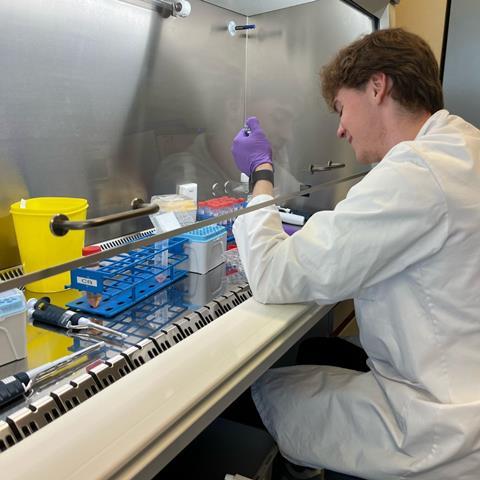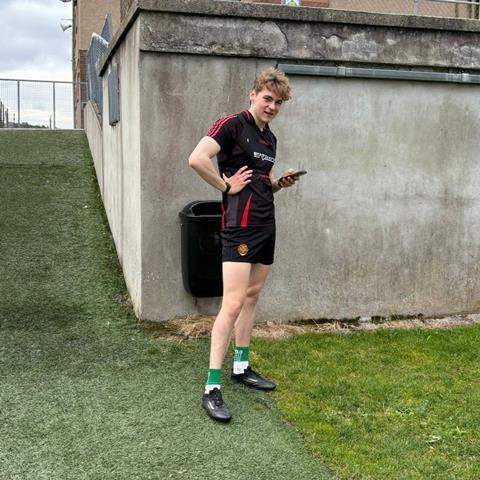Eoin McKernan reports back on his AMI-sponsored summer studentship which focused on the relationships between the gut microbiome and the metabolism of variable response drugs.
Eoin (21), from Newry, Co Down, is studying Pharmacy at Queen’s University Belfast. During his placement he worked with Dr Stephen Kelly, senior lecturer at the school, and PhD student Sakha Btoush.

During the project I was investigating the relationships between the gut microbiome and the metabolism of variable response drugs using an in vitro gut model.
Sakha and I were screening microbes from faecal samples, introducing medicines to the isolates, placing my samples in a reader to obtain data and determining growth curves.
READ MORE: Archaea: taking biocatalysis to the extreme
READ MORE: Peat bog microbes could be deployed to break down plastic pollution
Additionally, we carried out other experiments using an in vitro human gut model (that simulates the environment of the large intestine) and extracted DNA from these experiments for analysis to further understand medicine-microbiome relationships.
The real-world aims of this research by Dr. Kelly’s team are to understand how the gut microbiome affects the metabolism and efficacy of variable response medicines.
Unique microbiome profile
If we understand a patient’s microbiome as well as the medicines effect on it, the patient’s unique microbiome profile could be used to predict the effectiveness of these variable response drugs in patients. In some medicines, the variable response is due to the patient’s microbiome profile which affects the metabolism of the drug.
My work in the lab increases our understanding of the relationship between specific drugs and bacterial isolates commonly found in the human gut microbiome, allowing for efficacy prediction of these medicines depending on the unique gut microbiome composition of the patient.

Findings show that some drugs can inhibit the growth of some bacterial isolates commonly found in the human gut microbiome, even though these drugs are not antibiotics. I found this interesting because I had never considered the possibility that drugs such as antidepressants or blood pressure medications could have an antibacterial effect before I began this project.
Drug interactions
It was also interesting to see how drugs interact differently with different bacterial isolates (opportunistic and beneficial), enforcing the idea that they can significantly alter the human gut microbiome composition, for better or for worse.
These preliminary findings could help narrow the focus on future research on relationships between specific drugs and bacterial isolates in the lab, because my findings rule out relationships between some drugs and isolates, while proving a relationship between others.

These findings can help understand why medicines work for some individuals and not others and contribute to more specific personalised medicines in the future, allowing clinicians to make more informed decisions when prescribing medication. I hope that it can add to the growing area of research that is the human gut microbiome.
Next steps
Next, I will present my findings to my lab group and look out for more research opportunities in the future.
I also attended the AMI research symposium in Liverpool to further develop my understanding of the world of microbiology and scientific research in general.
I also completed another research project at University of Utrecht as a part of their summer school. I will continue to complete my degree in Queen’s and after my foundation training year for pharmacy I will apply for a PhD!
Follow Eoin on LinkedIn.
Find out more about AMI’s grants.







No comments yet